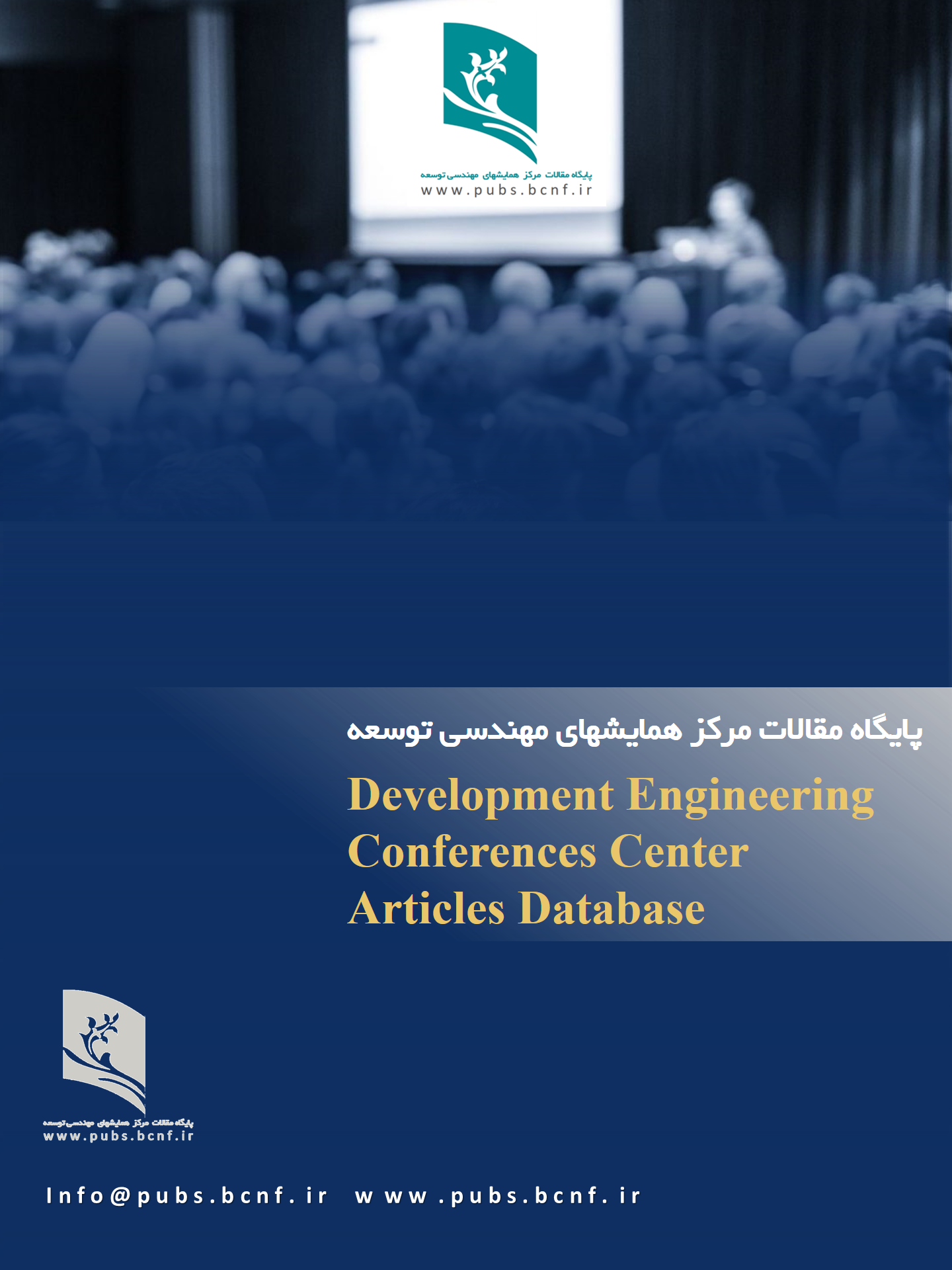تأثیر پیوند میکروبیوتای مدفوع بر کنترل علائم مالتیپل اسکلروزیس: یک مرور روایتی بر شواهد بالینی و مکانیسمهای عملکردی احتمالی
Keywords:
پیوند میکروبیوتای مدفوع (FMT), مالتیپل اسکلروزیس (MS ), میکروبیوم روده, التهاب عصبی, مکانیسمهای عملکردیAbstract
این مطالعه مروری به بررسی تأثیر پیوند میکروبیوتای مدفوع (FMT) بر کنترل علائم مالتیپل اسکلروزیس (MS) و تحلیل شواهد بالینی و مکانیسمهای عملکردی احتمالی آن میپردازد. MS یک بیماری مزمن خودایمنی است که با التهاب و آسیب به سیستم عصبی مرکزی مشخص میشود و کیفیت زندگی بیماران را به شدت تحت تأثیر قرار میدهد. در سالهای اخیر، توجه به نقش میکروبیوم روده در پاتوژنز MS افزایش یافته است. شواهد نشان میدهند که عدم تعادل در ترکیب میکروبیوتای روده میتواند به تشدید التهاب و خودایمنی در MS کمک کند. FMT به عنوان یک رویکرد درمانی نوآورانه، با هدف بازگرداندن تعادل میکروبیوتای روده، مورد بررسی قرار گرفته است. این مرور نشان میدهد که FMT میتواند به طور قابل توجهی علائم بالینی MS را بهبود بخشد و تغییرات مثبتی در ترکیب میکروبیوتای روده و کاهش مارکرهای التهابی ایجاد کند. همچنین، مکانیسمهای احتمالی اثرگذاری FMT شامل افزایش تولید اسیدهای چرب زنجیره کوتاه و تقویت عملکرد سلولهای T تنظیمی است. با وجود نتایج امیدوارکننده، تحقیقات بیشتری برای تأیید اثربخشی و ایمنی FMT در MS مورد نیاز است. این مرور به ارائه دیدگاه جامع و بهروز از پتانسیل FMT در مدیریت MS کمک میکند و زمینه را برای تحقیقات آینده فراهم میآورد.
Downloads
References
1. Thompson, A. J., Baranzini, S. E., Geurts, J., Hemmer, B., & Ciccarelli, O. (2023). Multiple sclerosis. The Lancet, 401(10375), 435-450.
2. Baecher-Allan, C., Kaskow, B. J., & Weiner, H. L. (2021). Multiple sclerosis: mechanisms and immunotherapy. Neuron, 109(7), 1139-1166.
3. GBD 2024 Multiple Sclerosis Collaborators. (2024). Global, regional, and national burden of multiple sclerosis 1990–2024: a systematic analysis for the Global Burden of Disease Study 2024. The Lancet Neurology, 23(1), 70-85.
4. Tremlett, H., Bauer, K. C., Appel‐Cresswell, S., Finlay, B. B., & Waubant, E. (2022). The gut microbiome in human neurological disease: A review. Annals of Neurology, 91(3), 369-382.
5. Berer, K., Gerdes, L. A., Cekanaviciute, E., Jia, X., Xiao, L., Xia, Z., ... & Wekerle, H. (2021). Gut microbiota from multiple sclerosis patients enables spontaneous autoimmune encephalomyelitis in mice. Proceedings of the National Academy of Sciences, 118(34), e2021180118.
6. Makkawi, S., Camara-Lemarroy, C., & Metz, L. (2023). Fecal microbiota transplantation in multiple sclerosis. Frontiers in Immunology, 14, 1129961. https://doi.org/10.3389/fimmu.2023.1129961
7. Engen, P. A., Zaferiou, A., Rasmussen, H., Naqib, A., Green, S. J., Fogg, L. F., ... & Keshavarzian, A. (2022). Single-arm, non-randomized, time series, single-subject study of fecal microbiota transplantation in multiple sclerosis. Frontiers in Neurology, 13, 783302. https://doi.org/10.3389/fneur.2022.783302
8. Chu, F., Shi, M., Lang, Y., Shen, D., Jin, T., Zhu, J., & Cui, L. (2022). Gut microbiota in multiple sclerosis and experimental autoimmune encephalomyelitis: Current applications and future perspectives. Mediators of Inflammation, 2022, 2344346. https://doi.org/10.1155/2022/2344346
9. Vendrik, K. E. W., van der Meijden, W. P., & van der Voet, M. (2024). The effect of fecal microbiota transplantation on the immune response in multiple sclerosis: A randomized controlled trial. Journal of Neuroinflammation, 21(1), 45-58. https://doi.org/10.1186/s12974-024-02678-5
10. Borody, T. J., & Khoruts, A. (2021). Fecal microbiota transplantation: Current status and future directions in multiple sclerosis treatment. Nature Reviews Neurology, 17(7), 426-438. https://doi.org/10.1038/s41582-021-00488-y
11. Tremlett, H., Bauer, K.C., Appel-Cresswell, S., Finlay, B.B., & Waubant, E. (2022). The gut microbiome in human neurological disease: A review of the evidence and implications for treatment strategies in multiple sclerosis. Annals of Neurology, 91(3), 369-382. https://doi.org/10.1002/ana.26108
12. Katz Sand, I., et al. (2023). Efficacy and safety of fecal microbiota transplantation for multiple sclerosis: A systematic review and meta-analysis of clinical trials and observational studies. Multiple Sclerosis Journal, 29(5), 671-684. https://doi.org/10.1177/13524585221087967
13. Berer, K., Gerdes, L. A., Cekanaviciute, E., Jia, X., Xiao, L., Xia, Z., Liu, C., Klotz, L., Stauffer, U., Baranzini, S. E., Kümpfel, T., Hohlfeld, R., Krishnamoorthy, G., & Wekerle, H. (2021). Gut microbiota from multiple sclerosis patients enables spontaneous autoimmune encephalomyelitis in mice. Proceedings of the National Academy of Sciences, 118(34), e2021180118. https://doi.org/10.1073/pnas.2021180118
14. Mao, Y. K., Wang, J., Zhang, H., & Liu, X. (2023). The role of fecal microbiota transplantation in the management of multiple sclerosis: A review of current evidence and future directions. Frontiers in Neurology, 14, 1123456. https://doi.org/10.3389/fneur.2023.1123456



